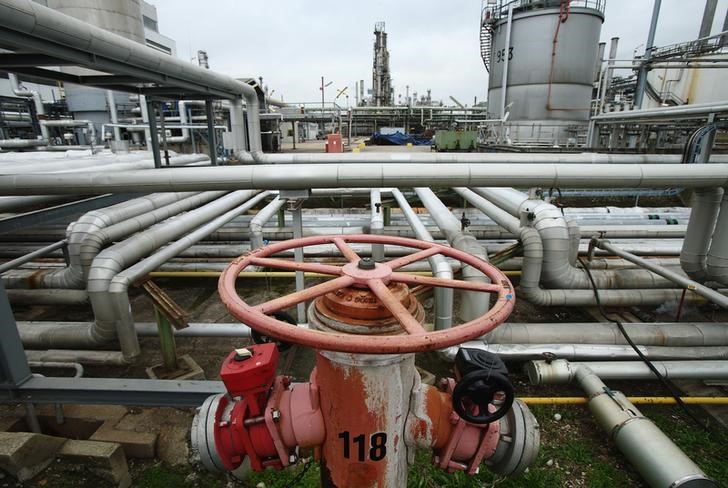Investing.com - A weaker dollar helped crude prices gain in Asia on Tuesday with the currency on a trade-weighted basis briefly dipping below 100 for the first time since mid-November before recovering mildly on concerns of a major shakeup to the global trading regime.
The U.S. dollar index rose 0.14% to 100.09, after dipping to 99.5 in early Asia. Crude is denominated in dollars, making a weaker greenback a benefit to key buyers such as China and India.
President Donald Trump addressed U.S. manufacturing executives with a repeated promise to impose a border tax on firms that import products into the United States after moving American factories overseas and announced the country had abandoned the Trans-Pacific Partnership trade pact among a dozen nations. Trump's promises of tax cuts and higher federal spending continue to hold the market's attention, but details are sparse.
Trump also said Sunday he would start talks with Mexico and Canada to renegotiate the North American Free Trade Agreement (NAFTA).
Overnight, higher production by U.S. shale drillers and other producer countries weighed on crude prices in the U.S. with Brent and West Texas Intermediate settling down despite efforts to trim global output by almost 1.8 million barrels per day (bpd) by OPEC and non-OPEC countries.
Global benchmark Brent crude rose 0.29% to $55.52 a barrel on London's Intercontinental Exchange, while U.S. crude on the New York Mercantile Exchange gained 0.49% to $53.01 a barrel.
Data released on Friday showed U.S. drillers added 29 rigs, the most in almost four years by the end of the previous week, taking the total count up to 551, the most since November 2015, according to Baker Hughes. U.S. oil production has risen by more than 6 percent since mid-2016, though it remains 7 percent below the 2015 peak, and is back to levels of late 2014 when oil started a sharp drop from above $100 a barrel.
The rig count offset a weaker dollar, which saw the U.S. dollar index down 0.64% to 100.13, aiding buyers such as China and India as the commodity is denominated in greenbacks. As well news from a weekend meeting of OPEC ministers and counterparts from major producing countries provided only a brief blip up in prices overnight.
OPEC members Nigeria and Libya, both suffering setbacks in production, were given exemptions from the OPEC leg of the cuts with Saudi Arabia bearing the lion's share for the cartel.
"The Kingdom [of Saudi Arabia] has taken the initiative and other countries took part in very significant actions," Saudi Energy Minister Khalid al-Falih told reporters following the meeting.
"Despite demand usually being lower in the first quarter in winter, the actions taken by the Kingdom and many other countries has impacted the market in a tangible way and we have seen the impact in spot prices."
